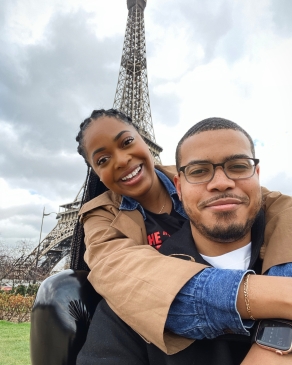Photo Credit: Keenan Hairston / Discover Durham
Best Practices For Creating Authentic Campaigns
Here are five tips for creating an authentic campaign for Juneteenth and other cultural observatory days and months.
1. Be Vulnerable - The Presidential bill solidified Juneteenth as a federal holiday, but Black families across the country have celebrated the day for generations. With that said, it’s easy for your audience to tell if you’re leveraging Juneteenth for organizational gain by campaigning to sell a product or event or even inauthentically displaying your “commitment” to diversity work. So, be vulnerable and share your organization’s personal story and connection to the holiday.
2. Display Your Journey - To support your vulnerability, give your audience a timeline of your discovery around Juneteenth. When did you learn the history of Juneteenth? Is it your first time exploring it as an organization? Do you want to celebrate it, but are trying to figure out how? Share these things! This gives your audience a better sense of your journey and allows them to see that you are on the road to learning more and are deciding to take the time to show your commitment through action.
3. Educate! - This is always one of our favorites; we mention it often! Use this time to educate yourself and your audience. Start by asking questions to those you have psychological safety with. Ask them to share why they celebrate and what it means to them. Then take what you learn and share it with your audience. I have been celebrating Juneteenth since I was a child, and every year, I learn something different by asking others how they honor the holiday. Look back at our blog post here on ways to educate yourself during Juneteenth.
4. Get Creative and Give Space - Work on a collaborative campaign. Are there African American businesses in your community that you have been looking for a reason to work with? Now is the time. Take this time to get creative and identify new opportunities to amplify voices that don’t usually get heard. Highlight that local black-owned coffee shop that you love, a creator who works hard to develop unique content for your destination or even a local nonprofit working on ways to make the community better. Take a break from your usual travel content and share stories important to you and your audience.
5. Don’t Publish! - We know, we know! “How can you create a blog about creating the perfect campaign, but you don’t want us to publish?” Let us explain. Campaigns can play a massive role in the presumption of a celebration. Campaigns represent the experiences of a specific group of people authentically, and they create ways in which people establish sentiment around those holidays. However, show your support BEFORE the holiday comes. This is a great way to show your commitment (i.e., publishing before) but also gives space for your audience to honor this day how they wish, without ads, targeted campaigns and calls to action.
Overall, we know that campaigns are a great tool for effective marketing. Specifically, when developing campaigns for multicultural communities, following the five steps above can progress your commitment to diversity, equity and inclusion. The key to creating a successful campaign is to consider your audience first! What are their experiences? How do they feel about this particular subject? And how would this be perceived? As a rule of thumb, if you would NOT create this campaign for any other cultural or religious holidays, then don’t. Lastly, if you’re unsure where to start, if your campaign is inclusive or if it needs some last-minute eyes from experts, contact our team at [email protected]—we can help!







